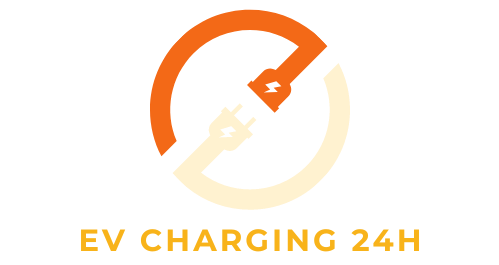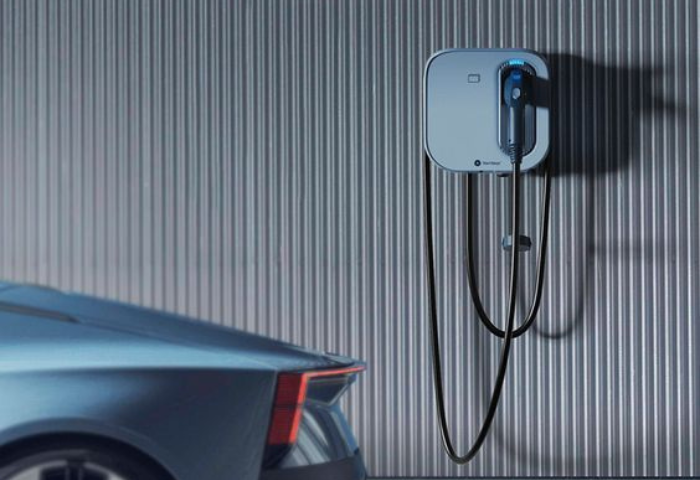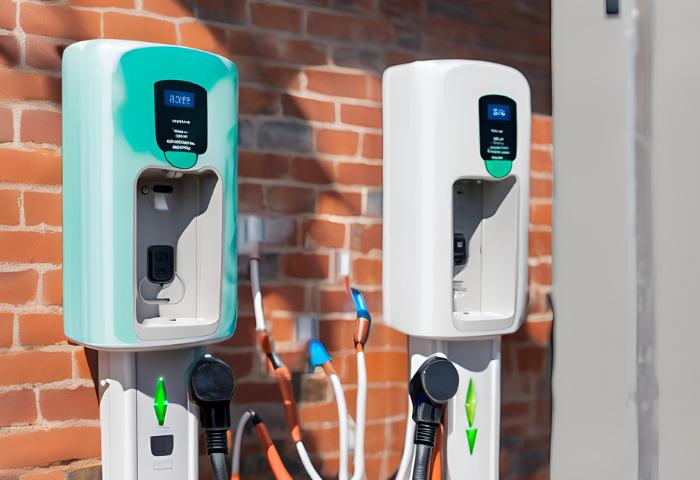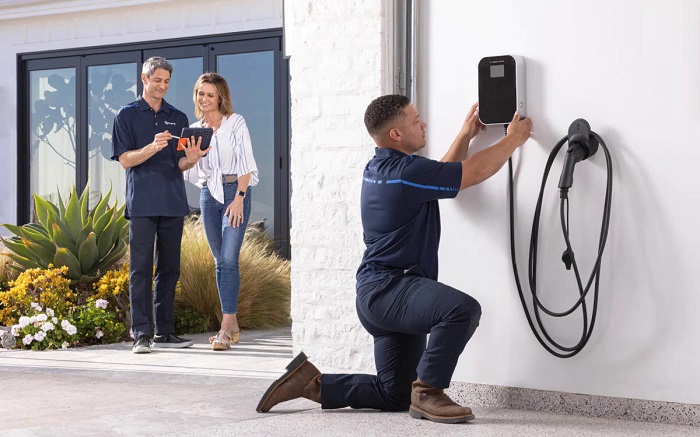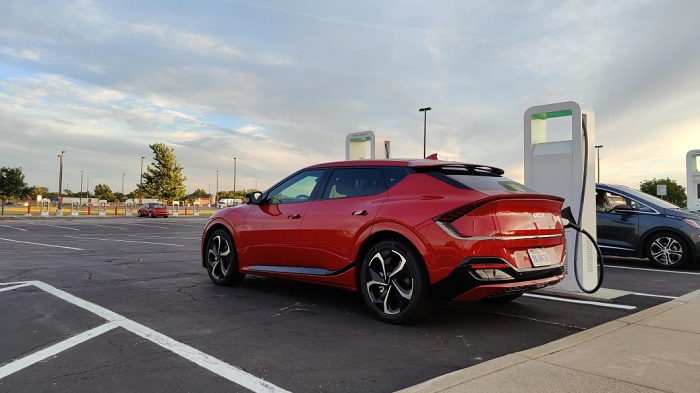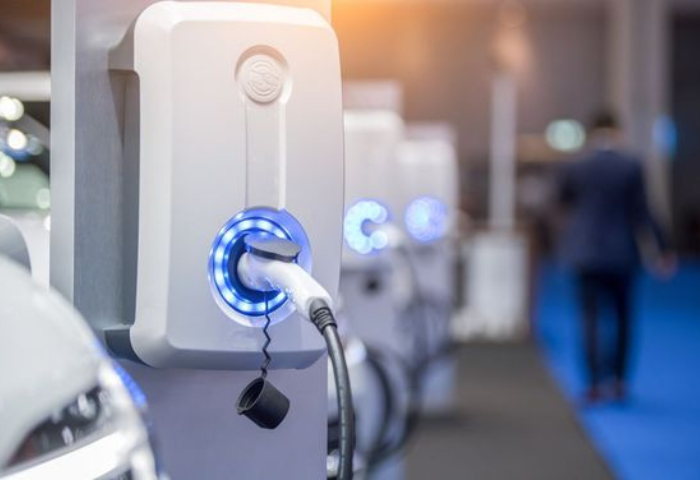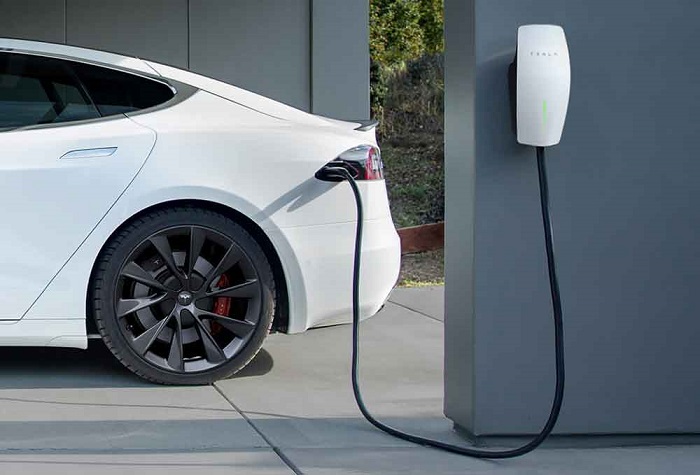The Cost of Level 1 EV Chargers: A Comprehensive Overview
Level 1 EV chargers, also known as portable chargers, offer a convenient and affordable way to charge electric vehicles at home. However, understanding the associated costs is crucial for making an informed decision.
This essay will delve into the various factors influencing the price of Level 1 chargers, providing a comprehensive overview for potential buyers.
Understanding the Cost of Level 1 EV Chargers
Brief Definition of Level 1 EV Chargers
Level 1 EV chargers are electric vehicle charging stations that operate on standard 120-volt household outlets. They provide a basic charging solution for EV owners, typically offering slower charging speeds compared to higher-level chargers.
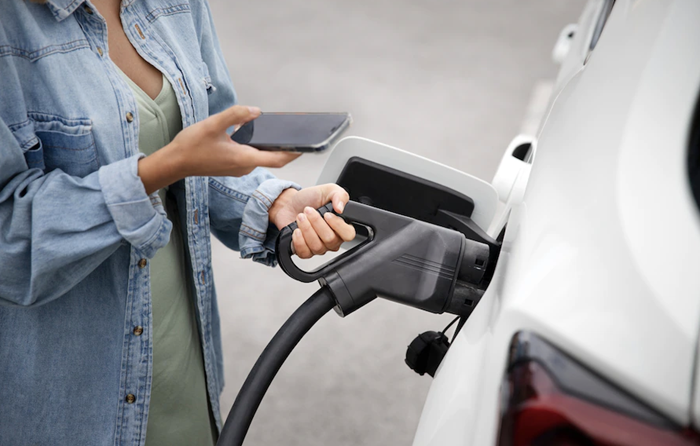
Factors Influencing the Cost of a Level 1 EV Charger
- Brand: The brand of the EV charger can significantly impact its cost. Well-known brands with established reputations may command higher prices due to perceived quality and reliability.
- Features: The features offered by the charger can affect its price. Advanced features such as adjustable amperage, Wi-Fi connectivity, and mobile app integration may come at a premium compared to basic chargers with fewer features.
- Installation Requirements: Installation requirements, such as the need for additional electrical work or the inclusion of mounting hardware, can influence the overall cost of the charger. Complex installations may incur higher labor costs, contributing to the overall expense.
- Certifications and Standards: Chargers that meet specific certifications and standards, such as UL certification or compliance with J1772 standards, may be priced higher due to the rigorous testing and quality assurance processes involved.
- Warranty and Support: Chargers that come with longer warranty periods or comprehensive customer support may have higher upfront costs but offer added peace of mind and value over time.
- Included Accessories: The inclusion of accessories such as charging cables, cable management systems, or carrying cases may affect the overall cost of the charger package.
By considering these factors, EV owners can make informed decisions when selecting a Level 1 EV charger that meets their needs and budget.
Understanding the Cost of Level 1 EV Charger Installation
While Level 1 EV chargers themselves are relatively inexpensive, installation costs can vary depending on your home’s electrical situation and some of the key factors below.
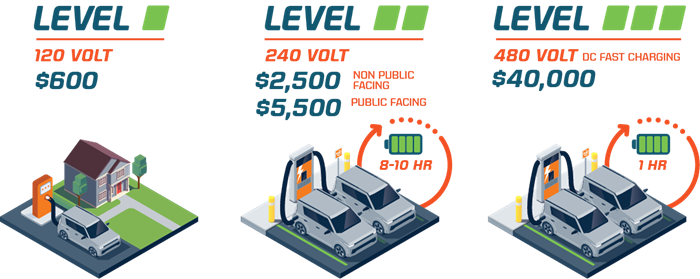
- Electrical Capacity of the Property: Your existing electrical system needs to handle the additional load of the EV charger. If your current circuits are overloaded, upgrades to the panel or additional circuits might be necessary, significantly increasing installation costs.
- Distance from the Electrical Panel: The distance between the desired charging location and your home’s electrical panel plays a crucial role. Running new conduit and wires for longer distances translates to more labor and materials, impacting the installation cost.
- Permitting and Inspection Fees: Depending on your local regulations, obtaining permits and scheduling inspections for electrical work might add to the overall cost.
Let’s explore these factors in more detail:
Electrical Capacity: An electrician will assess your existing electrical panel and circuits. If they are already at maximum capacity, additional circuits or a panel upgrade might be required to safely accommodate the charger. These upgrades can be expensive.
Distance from the Panel: Ideally, a dedicated outlet near your parking spot would be ideal. If the existing outlets are far from the panel, installing new conduit and wires to reach the desired location will add labor and material costs to the project.
Permitting and Inspection Fees: Local regulations might require permits for electrical work and inspections by qualified personnel to ensure safety compliance. These fees can vary depending on your location and the complexity of the installation.
Is Installing a Level 1 EV Charger Worth It?
Installing a Level 1 EV charger at home can be a worthwhile investment for many EV owners, offering long-term benefits that may outweigh the initial installation costs.

1. Potential Fuel Cost Savings:
This is a major advantage. Electric vehicles typically have lower operating costs compared to traditional gasoline-powered vehicles, especially when charged at home, where electricity rates are often lower than gasoline prices. Over time, the savings on fuel costs can add up, contributing to your overall cost-effectiveness.
2. Increase in Property Value (Potential):
While it’s challenging to quantify the exact increase in property value solely due to the presence of a Level 1 charger, having EV charging infrastructure at home can enhance the appeal of your property, particularly in markets where EV adoption is growing. Potential buyers may see the convenience of having a charging solution already in place, which could make your property more attractive and potentially increase its resale value.
3. Incentives and Rebates:
Government and utility companies often offer incentives and rebates to encourage the adoption of electric vehicles and the installation of EV charging infrastructure. While Level 1 chargers may not be eligible for as many incentives as higher-level chargers, there are still potential benefits to consider.
- Government Tax Credits: The federal government might offer tax credits for purchasing and installing EV charging equipment.
- Utility Company Rebates: Many utility companies offer rebates or discounts on EV charging equipment to encourage home charging and reduce strain on the power grid during peak hours. Contact your local utility provider to see if they have any programs available.
Additional Costs to Consider with a Level 1 EV Charger
Level 1 EV chargers are known for their low maintenance requirements. However, there are a couple of additional costs to consider when owning one:

1. Maintenance and Repairs:
- Routine Maintenance: Level 1 chargers are generally simple devices with fewer components compared to higher-level chargers. They typically require minimal maintenance beyond periodic inspections to ensure proper functioning of the plug and cable.
- Repairs: While Level 1 chargers are relatively straightforward, they are not immune to wear and tear or potential malfunctions. If any components fail or the charger itself malfunctions, repair costs may include parts and labor. Depending on the warranty coverage, some repairs may be covered, while others may incur out-of-pocket expenses.
2. Electricity Consumption:
- Energy Efficiency: Level 1 chargers are not as energy-efficient as higher-level chargers, such as Level 2 or DC fast chargers. This means they draw more power from the grid and take longer to charge the vehicle.
- Electricity Rates: The cost of electricity varies depending on your location and utility provider. Be sure to consider the electricity rates in your area when estimating the ongoing cost of charging your EV with a Level 1 charger.
- Charging Frequency: The frequency of charging will also impact your electricity bill. If you charge your EV daily or multiple times a week, the electricity consumption will be higher compared to less frequent charging.
3. Installation Costs:
While not directly related to owning the charger itself, the installation of a Level 1 charger may incur additional expenses. This can include electrical work to ensure the charger is safely and properly connected to your home’s electrical system. Installation costs can vary depending on factors such as the distance from the electrical panel, any necessary upgrades to the electrical system, and local labor rates.
4. Warranty and Service Plans:
Some manufacturers offer warranty coverage and service plans for their EV chargers, which may include maintenance and repair services for a certain period after purchase. Be sure to inquire about these options and consider the associated costs when deciding on a Level 1 charger.
Overall, while Level 1 chargers are generally more affordable upfront compared to higher-level chargers, it’s essential to consider the potential long-term costs, including maintenance, repairs, and electricity consumption, to make an informed decision based on your budget and charging needs.
Cost-Saving Benefits of a Level 1 EV Charger
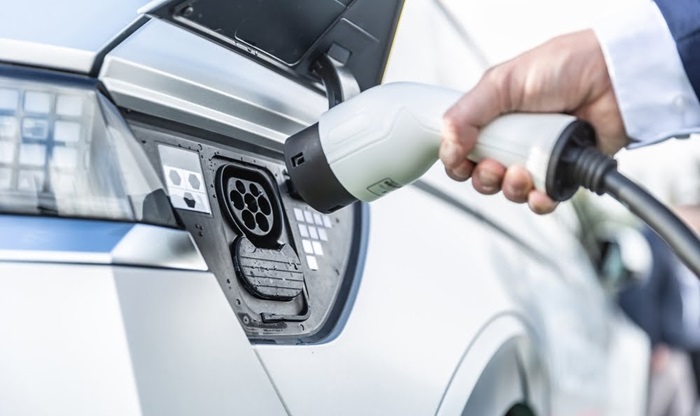
1. Long-Term Fuel Cost Savings:
Using a Level 1 EV charger can lead to significant long-term fuel cost savings compared to traditional gasoline-powered vehicles. Electric vehicles typically have lower operating costs per mile compared to internal combustion engine vehicles, primarily due to the lower cost of electricity compared to gasoline.
By charging your EV at home using a Level 1 charger, you can take advantage of off-peak electricity rates and potentially save even more on fuel costs.
2. Tax Incentives and Rebates:
In many regions, EV owners may qualify for tax incentives, rebates, or other financial incentives aimed at promoting the adoption of electric vehicles.
These incentives can help offset the cost of purchasing an EV charger and may include federal tax credits, state rebates, utility incentives, or local government incentives. By taking advantage of these incentives, EV owners can further reduce the upfront cost of installing a Level 1 EV charger and enjoy additional cost savings over time.
3. Convenience and Accessibility:
Level 1 EV chargers offer the convenience of charging your electric vehicle at home using a standard 120-volt electrical outlet.
This means you can charge your EV overnight while you sleep or during the day while you’re at home, without the need to visit a public charging station. By eliminating the need for frequent trips to the gas station, EV owners can save both time and money on refueling their vehicles.
4. Reduced Maintenance Costs:
Electric vehicles have fewer moving parts compared to internal combustion engine vehicles, resulting in lower maintenance costs over the lifetime of the vehicle. With fewer components subject to wear and tear, EV owners can expect to spend less on routine maintenance and repairs, further contributing to long-term cost savings.
The overall cost of owning a Level 1 EV charger is influenced by several key factors: the charger itself, installation costs, and ongoing electricity expenses, which depend on individual usage and local utility rates.
To find the best prices for Level 1 chargers and installation, consider researching online resources like manufacturer websites, retailer comparison tools, and online marketplaces. Additionally, contacting local electricians for quotes can provide accurate estimates for your specific installation needs.

Henry Michael is a leading expert in EV charging station research, specializing in innovative solutions for electric vehicle infrastructure. With a passion for sustainability and technological advancement, he is dedicated to advancing the accessibility and efficiency of EV charging worldwide.
